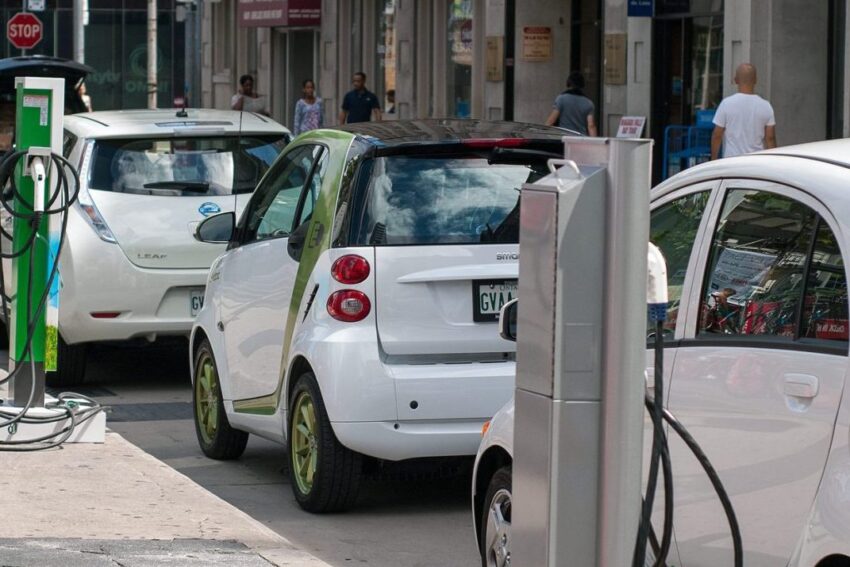AG INSIGHT | 10/12/2020
Sixth Carbon Budget: the UK needs a net zero policy plan and delivery body

Putting in place a comprehensive policy delivery plan in 2021 backed by a net zero delivery body will be essential to take on the huge investment and cross-sectoral challenge that the Committee on Climate Change’s sixth carbon budget has set for the UK, argues Nick Molho, executive director of the Aldersgate Group.
The Committee on Climate Change (CCC) published its most ambitious carbon budget yet on 9 December. The sixth carbon budget recommends that the UK aims to cut its territorial emission by at least 78% by 2035 compared to 1990 levels. This would put the UK on a credible pathway to reach its legislated target of net zero emissions by 2050. It is hard to underestimate the importance of this carbon budget, if anything because it is the first time that an advisory body has set out such a detailed pathway for a major economy to achieve net zero emissions.
Importantly, the CCC highlighted that the high levels of investment implied by the sixth carbon budget are exactly the kind of challenge that the UK economy needs as it recovers from the COVID-19 crisis and could result in a 2% increase to GDP by 2035 as resources are diverted from fossil fuel imports to UK low carbon investment. However, as argued in the Aldersgate Group’s latest report, the CCC’s challenge can only be met if the UK Government builds on the Prime Minister’s Ten Point Plan and puts in place a comprehensive and well joined-up policy delivery plan for its net zero target. There are four key reasons for this.
Four reasons for a comprehensive net zero delivery plan
First, it is clear from the budget that the 2020s is a ‘make-or-break’ decade for UK climate policy. Unless significant and urgent infrastructure investments are made in this decade in areas such as power, buildings, transport and industry, the UK economy will not be on a credible pathway to net zero emissions.
The investments at stake are significant. We are talking here about quadrupling the UK’s offshore wind capacity in the space of ten years, making corresponding investments in the security and flexibility of the power grid, having all the supportive infrastructure in place to support sales of exclusively zero emission vehicles by 2030 and delivering deep retrofits to the UK’s buildings and its 28 million homes. The urgency and scale of this infrastructure challenge demands a comprehensive policy plan.
Second, a sustainable transition to a net zero emissions economy can only take place if the private sector does most of the heavy lifting, both in terms of the “doing” and the “financing” of the transition. With the CCC estimating that annual low carbon investments will need to reach £50 billion by 2030, businesses and financiers will only be able to play their part if there are clear regulations, fiscal incentives and market mechanisms in place that create a stable investment environment and one where predictable returns can be made.
Third, delivering the rapid rate of emission reductions envisaged by the sixth carbon budget will require unprecedented co-ordination between the policy measures introduced across different sectors of the economy. Decisions on how to decarbonise power, domestic heat, transport and heavy industry are closely interlinked and will need to be considered as a whole, if anything to provide clarity on where clean electricity and low carbon hydrogen can be put to best use. The same could be said of decisions on negative emissions, land management and agricultural practices.
Fourth, putting the UK on track for net zero emissions is also about helping shape future demand and behaviour patterns. The CCC made the point in its budget that cutting emissions from transport is not just about replacing petrol and diesel cars with electric vehicles, it is also about reducing the number of individual journeys through better planning, more active and public transport options and a more integrated strategy for transport infrastructure decisions.
When it comes to food production, significant emission reductions can be achieved through dietary changes, with the CCC recommending a 20% cut in high carbon and dairy consumption by 2030. Ambitions here will have an important knock-on impact on the changes that need to take place across land management, agricultural practices and the food manufacturing sector.
A co-ordinated approach is vital
In summary, putting an industrialised nation like the UK on a pathway to net zero emissions requires taking on a huge investment challenge, attracting significant flows of private investment in the process, co-ordinating decisions across multiple sectors of the economy and ensuring that measures to support investment are carefully joined up with policies to stimulate greener behaviour patterns.
The government has made some important steps forward in 2020, by increasing its ambition on offshore wind, opting for a phase out of sale and diesel vehicles by 2030 and increasing innovation funding to decarbonise industry. But taking on the challenge set by the sixth carbon budget requires unprecedented levels of targeted and carefully co-ordinated policy interventions. Putting forward a comprehensive policy delivery plan in 2021 – followed soon thereafter by a net zero delivery body which can oversee and co-ordinate policy interventions – will be central to this.
To find out more about the Aldersgate Group’s recommendations for what a net zero delivery plan should look like, click here to access our ‘Building a Net Zero Emissions Economy’ report.
To find out more about the Aldersgate Group’s recent economic analysis (LSE Grantham) on low carbon investment and economic recovery, click here
To find our more about our recommendations for transport sector decarbonisation, click here



